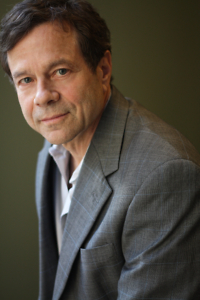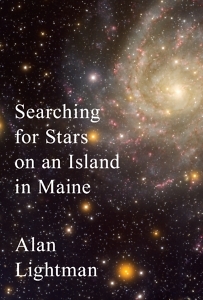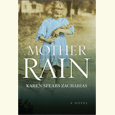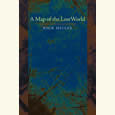The Allure of the Absolutes
Alan Lightman revisits eternal questions in Searching for Stars on an Island in Maine
The mystical border between reason and faith, where rational inquiry yields uncertain answers or no answers at all, is unsettling territory for most of us. When it comes to the age-old questions about mortality and meaning, people tend either to comfort themselves with the doctrinal certainties of religion or to shy away from the issue with a shrug and a who knows? Some things are too disturbing to contemplate. Here be dragons.

In his latest essay collection, Searching for Stars on an Island in Maine, novelist Alan Lightman sets out not to battle those dragons but to commune with them, using the rationality of a scientist and the sensibility of an artist to seek an uneasy peace.
Lightman—a Memphis native who worked as a theoretical physicist for two decades before achieving literary acclaim with his first novel, Einstein’s Dreams—describes himself as an atheist and a humanist, but in recent years he’s become an eloquent advocate for spirituality minus the supernatural. He rejects both traditional belief in divinity and the kind of dogmatic atheism that scoffs at the spiritual impulse.
Lightman is not unique in his search for a third way, but his deep knowledge of science gives him an exceptional tool for finding a place of reconciliation. In his 2014 essay collection, The Accidental Universe, he focuses on recent advances in theoretical physics and the way they’ve reshaped our understanding of existence. Searching for Stars comes at existential questions from a slightly different direction, with an emphasis on his efforts to understand his own mystical experience within the context of his commitment to reason and scientific inquiry. He describes this process as “a winding and difficult path, with boundaries sometimes in clear view and sometimes dissolving into the mist.”
Most of the twenty short essays here are framed as meditations inspired by Lightman’s summer home on an island off the coast Maine. The island is small, sparsely populated, and accessible only by boat. In “Longing for Absolutes in a Relative World,” he recounts a moment when, while making a risky nighttime crossing from the mainland, he impulsively turned off the boat’s lights and engine and turned his gaze up to the star-filled sky: “The boat disappeared. My body disappeared. And I found myself falling into infinity.” In that moment, the scientist “understood what Lord Indra of the Vedas must have felt when he first drank soma and could see the light of the gods.”
 His experience in the boat marked a turning point for Lightman, giving him a new understanding of what he calls “the allure of the Absolutes”—i.e., spiritual concepts that offer “changelessness, ubiquity, perfection” in the ever-changing and imperfect material world. Many of the essays in Searching for Stars are essentially dialogues between some aspect of these spiritual absolutes and scientific theories or discoveries that touch on the same issues.
His experience in the boat marked a turning point for Lightman, giving him a new understanding of what he calls “the allure of the Absolutes”—i.e., spiritual concepts that offer “changelessness, ubiquity, perfection” in the ever-changing and imperfect material world. Many of the essays in Searching for Stars are essentially dialogues between some aspect of these spiritual absolutes and scientific theories or discoveries that touch on the same issues.
“Certainty,” for example, places St. Augustine’s notions about God and free will alongside what neuroscience and quantum mechanics tell us about the physical basis of personal identity. “Motion” begins with a discussion of Van Gogh’s rapturous artistic vision and moves on to Einstein’s theory of relativity and his idea of God as a “beautiful and mysterious order underlying the world.”
Not surprisingly, it’s in the essay called “Death” where Lightman writes most movingly about our hunger for absolutes. He considers the Buddhist concept of bardo, where consciousness resides between death and rebirth, and then turns to the “grim” decay of consciousness experienced in dementia. He argues for understanding death as the complete loss of all consciousness, “the name we give to a collection of atoms that once had the special arrangement of a functioning neuronal network and now no longer does so.” This tidy definition, he concedes, does nothing to relieve his longing for his dead parents or to soften “the impossible truth that they do not exist.”
Readers looking for resolution, for the perfect truce between reason and faith, will not find it here. As the title suggests, this is a book about the eternal human pursuit of understanding—led in this case, by a writer of exceptional erudition and sensitivity. Searching for Stars is a thrilling ramble through the outer boundaries of what can be known and what cannot, a mysterious hinterland that is Lightman’s home turf.

Maria Browning is a fifth-generation Tennessean who grew up in Erin and Nashville. Her work has appeared in Guernica, Literary Hub, and Still. She is the managing editor of Chapter 16.


